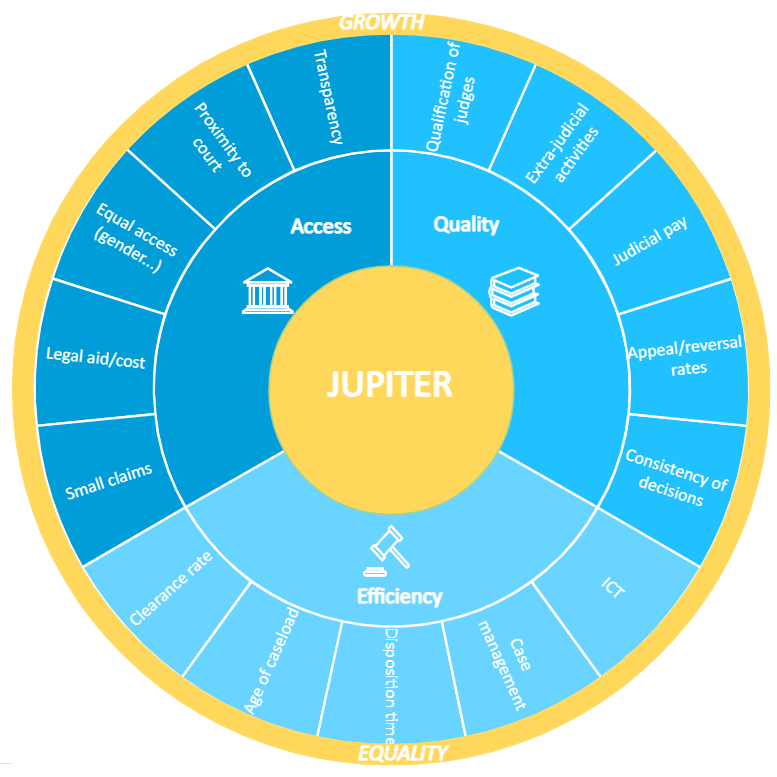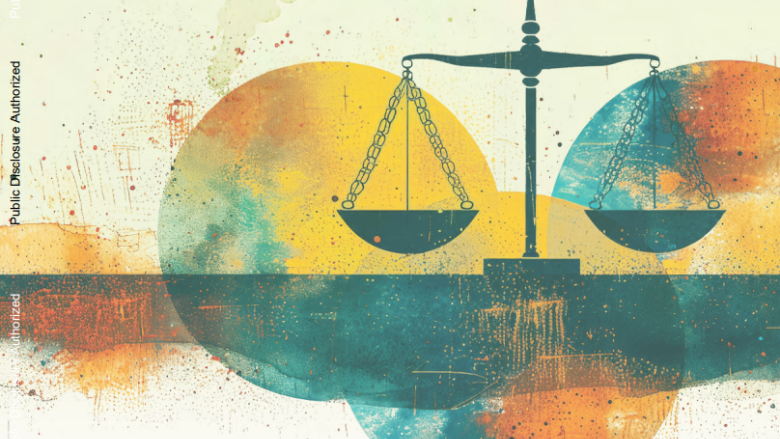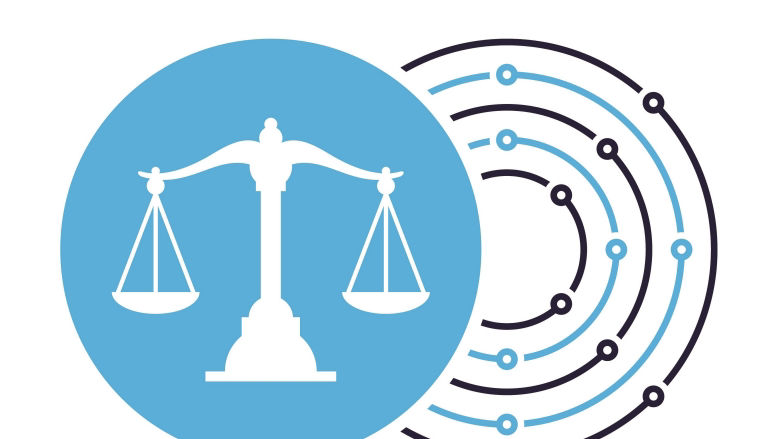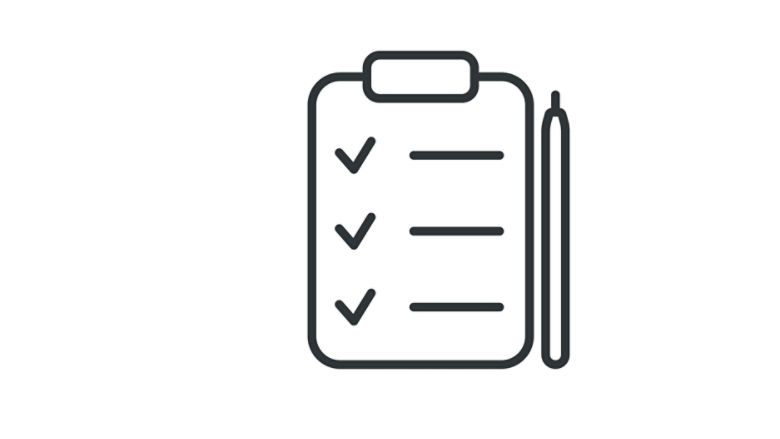Citizens in most countries perceive justice delivery to be ineffective, corrupt, and subject to subversion. Similarly, private businesses frequently identify courts as the biggest obstacle to their operations. Governments are interested in understanding users’ perceptions as well in changing them by improving the system. Effective justice institutions are vital to growth and equality. When justice institutions operate effectively, accountability increases, trust in the government grows, and citizens and businesses can invest with confidence that their rights will be protected. Lack of access to justice often leads to violence and societal conflict. At the extreme, such conflict results in civil war, increasing poverty and limiting the potential of a nation for shared prosperity.
To support governments efforts to improve judicial service delivery, the WBG’s Governance Global Practice created JUPITER – a universally applicable country-based assessment framework for measuring the effectiveness of a country’s judiciary in three areas: access to justice, efficiency, and quality.

The goal of JUPITER is to identify strengths and weaknesses of the judicial system to establish a practical sequence of reform and capacity development actions. The output of the assessment is a report that provides the analytical underpinning for dialogue on justice reform and helps prioritizing efforts according to the country’s needs.
JUPITER focuses on three institutions: the Judiciary, the Ministry of Justice, and Legal Aid Services. Oher institutions and services are captured only for their effects on the key institutions’ performance.
JUPITER attempts to distinguish between the legal framework and the practice. In some areas, the two coincide (for example, for most efficiency measures). In other areas, they do not, and JUPITER will distinguish between what the law established and the actual usage, thus providing insights on the implementation gap.
Data collection is done through a combination of readings of the law, administrative data, and interviews with government officials, judges, lawyers, and court users. JUPITER assessments take approximately 6 months to complete, and they are carried out by the Global GOV team in cooperation with regional colleagues.
This version of JUPITER is intended for piloting, to determine whether it can serve as the basis for a universal assessment. Piloting is underway in Liberia and South Sudan. Based on this test, further adjustments will be made to the methodology. JUPITER is intended as a complement for existing assessments and analytical products produced by the WBG (e.g., Functional Reviews, JPEIRs, etc.).








